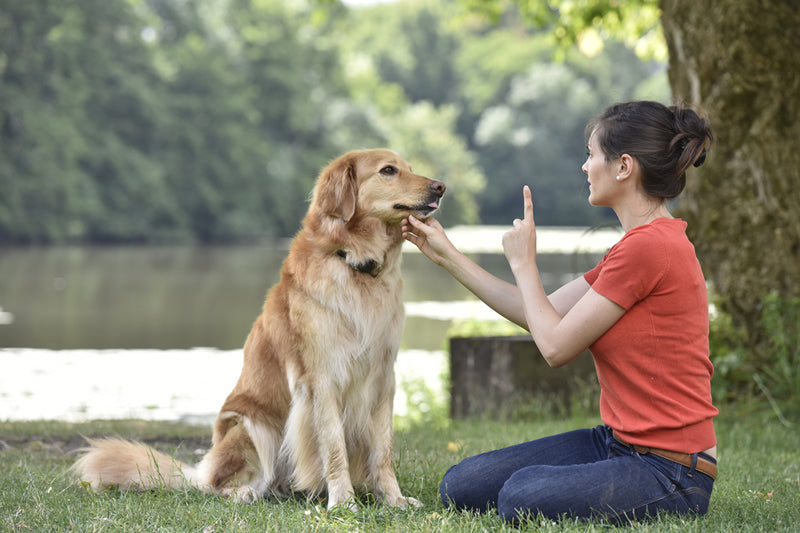
Dog Obedience Classes for Reactive Dogs: A Path to Peaceful Behavior?
Share
Dog obedience classes for reactive dogs can be an incredibly beneficial resource for pet owners who find themselves at wit's end. Dealing with a reactive dog is a common challenge, and many pet owners seek effective solutions to help their furry friends become more calm and manageable. In this in-depth article, we'll explore how these classes work, the benefits they offer, and why they might be the perfect choice for you and your reactive dog.
Reactive dogs can pose significant challenges not only for their owners but also for the dogs themselves. Whether your dog reacts to other dogs, strangers, or certain situations, the unpredictability of their behavior can be stressful for both parties. Hence, dog obedience classes for reactive dogs are designed to address these specific issues head-on, offering customized training that targets the root of the reactivity.

Why You Need Specialized Classes for Reactive Dogs
Understanding the unique needs of your reactive dog is vital in helping them overcome problematic behaviors. Reactive dogs often respond to stimuli in their environment with excessive aggression, fear, or excitement. Standard training might not cater to these specific needs, which is why a specialized class becomes imperative.
In classes designed for reactivity, trainers will help pet owners recognize triggers and teach techniques to manage these reactions. Knowledgeable trainers guide the class, offering insights and strategies based on years of experience. Classes like these not only build better behavior but also strengthen the bond between you and your pet by creating trust and setting clear expectations.
The Benefits of Enrolling in These Classes
- Customized Training: Trainers focus on the specific issues your dog faces, which leads to more effective behavior modulation.
- Socialization: Dogs learn to cope with various stimuli in a controlled environment, gradually becoming more comfortable with their surroundings.
- Stress Reduction: For both owners and dogs, reduced reactivity means less stress and more enjoyable walks and outings.
- Improved Health: A calmer demeanor often equates to a healthier lifestyle, benefiting the overall well-being of your pet.
If you're interested in exploring this further, consider reading about dog obedience classes near me or dog obedience classes online for more details on how and where you can start.
How These Classes Work
Reactively managing a dog's training often includes behavior modification plans, controlled exposure to stimuli, and positive reinforcement. The approach is gentle yet effective, allowing dogs to understand the expected behavior through repetition and rewards.
Sessions usually begin with the creation of a safe training environment. Slowly, dogs are exposed to triggers in a controlled way. During this part of training, positive reinforcement is essential. Dogs receive lots of praise, treats, or toys for demonstrating desired behaviors and for remaining calm around triggers. Owners learn to read their dog's body language, enabling them to predict and prevent reactive episodes before they occur.
What to Expect from the Training Sessions
Dog obedience classes for reactive dogs often foster growth for both the pet and the owner. These sessions usually include:
- Initial Assessments and Goals: Trainers make observations and collaborate with owners to set realistic goals for behavior modification.
- Custom Plan Implementation: Specific strategies tailored for individual dogs and their triggers.
- Regular Progress Assessments: Tracking improvement helps adjust the training plan as needed.
- Owner Participation: Key to success is the owner's involvement in continuing strategies at home.
To read more on related strategies, check out this external guide for insights.
Additional Support and Resources
Aside from classes, there are plenty of resources available to further enhance the training of reactive dogs. Books, online courses, and even the advice of fellow pet owners can play a critical role. Consider joining forums or reading about specific approaches from knowledgeable sources. An effective way to supplement training is by exploring materials such as puppy classes or aggression-focused classes for more nuanced approaches.

A Hopeful Future with Training and Consistency
With consistency and patience, you can see a significant transformation in your reactive dog's behavior. Obedience classes provide the structured environment necessary for this change, focusing closely on the needs of your pet. The process of addressing reactivity is a partnership between you, your dog, and your trainer that thrives on communication and mutual understanding.
Rating the success of these classes often involves looking at improvements over weeks or months rather than expecting instant changes. As you and your dog make progress, you'll likely experience enhanced behaviors and a more peaceful household. The path to peace with a reactive dog is filled with patience, love, and a commitment to learning. The journey might seem daunting, but the rewards are well worth the effort. So why wait? Enroll today and provide your dog with the peaceful life they deserve, and in return, reap the emotional benefits of a balanced canine companionship.
FAQs
1. Can reactive dogs become aggressive?
Yes, reactive dogs can escalate to aggression if not properly trained and monitored. Professional guidance is crucial.
2. How long does it take to train a reactive dog?
It varies, but with consistent practice and classes, improvements can be seen in weeks, although full training may take months.
3. Are reactive dog classes suitable for all breeds?
Yes, any breed can benefit from these classes as they focus on individual behaviors rather than breed-specific traits.
This article contains affiliate links. We may earn a commission at no extra cost to you.
